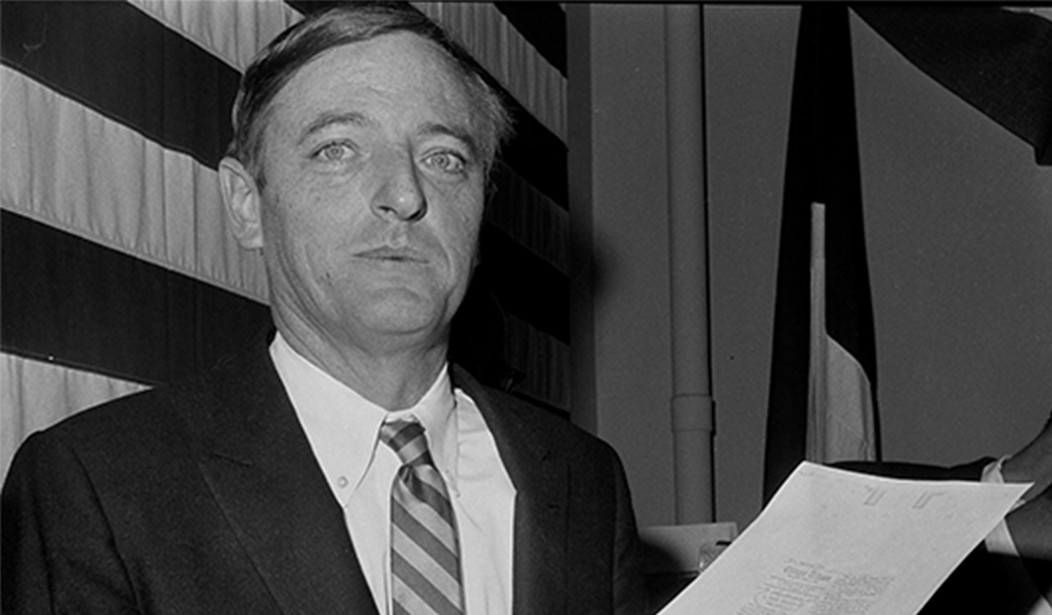I cried and cried and cried on the night of Feb. 27, 2008. I'm not sure anyone ever did that while watching Charlie Rose on PBS before. But there I was.
William F. Buckley Jr. had died that day, and Rose played recaps of interviews with Bill over the years. Bill founded National Review magazine in 1955, and I was editor of the magazine's website when he died.
I announced his death online and received so many beautiful notes that day about the impact he had on people's lives. One doctor told me that Bill was the father figure in his life -- as his mother encouraged him to watch Bill's PBS show "Firing Line." Catholic priests told me that he helped inspire their vocations. A nun said the same. People told me that when they met him, he made them feel like the most important person in the world.
I mention this because PBS's "American Masters" series has a new documentary about Bill, "The Incomparable Mr. Buckley." I'm grateful, because he was a cultural force, and the show captures some of that impact.
What I love about the documentary, as someone who was humbled and blessed to know Bill a bit in his later years, is the amount of time it spends listening to his son, Christopher, talking about their time together sailing and his father's love for his wife, Patricia.
But something the treatment misses is Bill's faith in God and deep appreciation for everything that came before him and made him who he was.
If there is one word that would accurately describe Bill, it would be gratitude. Bill didn't think that he was the greatest person to come on the human scene. He knew he had a calling to serve for as long as he was on the Earth.
Bill had a public platform, and he took it seriously. He defended freedom with all his might and influence. The documentary notes his friendship with President Ronald Reagan, but makes Bill's role in the ending of the Soviet Union a mere footnote.
Recommended
And while American history was changed because of his life, the most enduring and important lessons of Bill's existence had to do with things we can all relate to and learn from in the most practical ways.
Part of the reason I cried during the Rose memorial the night WFB died is because in one of the interviews, Bill talked about how he was ready to die -- a moment that's included in the new documentary. We live in a culture where people are pressured to consider assisted suicide and made to feel like burdens. This was something different. Bill was heartbroken about the recent death of his wife, and he was tired. And he knew he had a savior who would welcome him with mercy.
I think about Bill often, for many reasons. He was so kind to me, an awkward 20-something editorial associate at National Review, including when my father died. I wonder, too, what he would think of Pope Francis. He was never shy to comment on Catholic Church matters. He was a great lover of the traditional Latin Mass, and was not pleased with Second Vatican Council changes. At the same time, Pope Francis emphasizes time and again how we have more Christian persecution today than at the beginning of Christianity. That's something that would light a fire under Bill.
In the end, "The Incomparable Mr. Buckley" blames its subject for our current insane politics. That misses the most important parts of him: his empathy and civility. We need to focus on more than politics. The documentary seemed to get that at the beginning, but then lost the focus. Here's another place where Pope Francis and Bill Buckley would agree: We can't live in ideological silos. We need to celebrate the gifts we have been given -- gifts that include people who think differently than we do.
WFB's life was about so much more than politics. "The Incomparable Mr. Buckley" understands that to an extent, but missed the more enduring lessons, in making everything about Donald Trump in the end.
(Kathryn Jean Lopez is senior fellow at the National Review Institute, editor-at-large of National Review magazine and author of the new book "A Year With the Mystics: Visionary Wisdom for Daily Living." She is also chair of Cardinal Dolan's pro-life commission in New York, and is on the board of the University of Mary. She can be contacted at klopez@nationalreview.com.)

























Join the conversation as a VIP Member